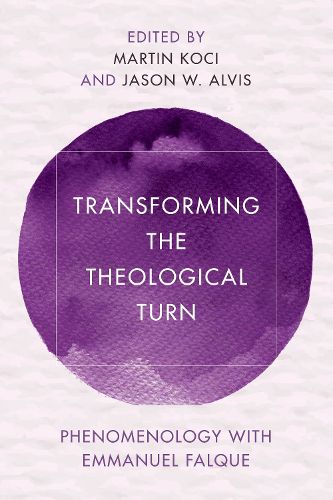Readings Newsletter
Become a Readings Member to make your shopping experience even easier.
Sign in or sign up for free!
You’re not far away from qualifying for FREE standard shipping within Australia
You’ve qualified for FREE standard shipping within Australia
The cart is loading…






Continental philosophers of religion have been engaging with theological issues, concepts and questions for several decades, blurring the borders between the domains of philosophy and theology. Yet when Emmanuel Falque proclaims that both theologians and philosophers need not be afraid of crossing the Rubicon - the point of no return - between these often artificially separated disciplines, he scandalised both camps.
Despite the scholarly reservations, the theological turn in French phenomenology has decisively happened. The challenge is now to interpret what this given fact of creative encounters between philosophy and theology means for these disciplines.
In this collection, written by both theologians and philosophers, the question Must we cross the Rubicon? is central. However, rather than simply opposing or subscribing to Falque’s position, the individual chapters of this book interrogate and critically reflect on the relationship between theology and philosophy, offering novel perspectives and redrawing the outlines of their borderlands.
$9.00 standard shipping within Australia
FREE standard shipping within Australia for orders over $100.00
Express & International shipping calculated at checkout
Continental philosophers of religion have been engaging with theological issues, concepts and questions for several decades, blurring the borders between the domains of philosophy and theology. Yet when Emmanuel Falque proclaims that both theologians and philosophers need not be afraid of crossing the Rubicon - the point of no return - between these often artificially separated disciplines, he scandalised both camps.
Despite the scholarly reservations, the theological turn in French phenomenology has decisively happened. The challenge is now to interpret what this given fact of creative encounters between philosophy and theology means for these disciplines.
In this collection, written by both theologians and philosophers, the question Must we cross the Rubicon? is central. However, rather than simply opposing or subscribing to Falque’s position, the individual chapters of this book interrogate and critically reflect on the relationship between theology and philosophy, offering novel perspectives and redrawing the outlines of their borderlands.